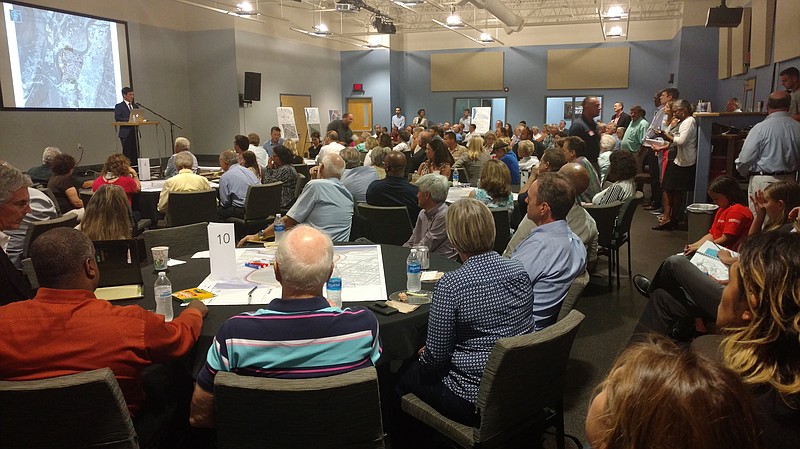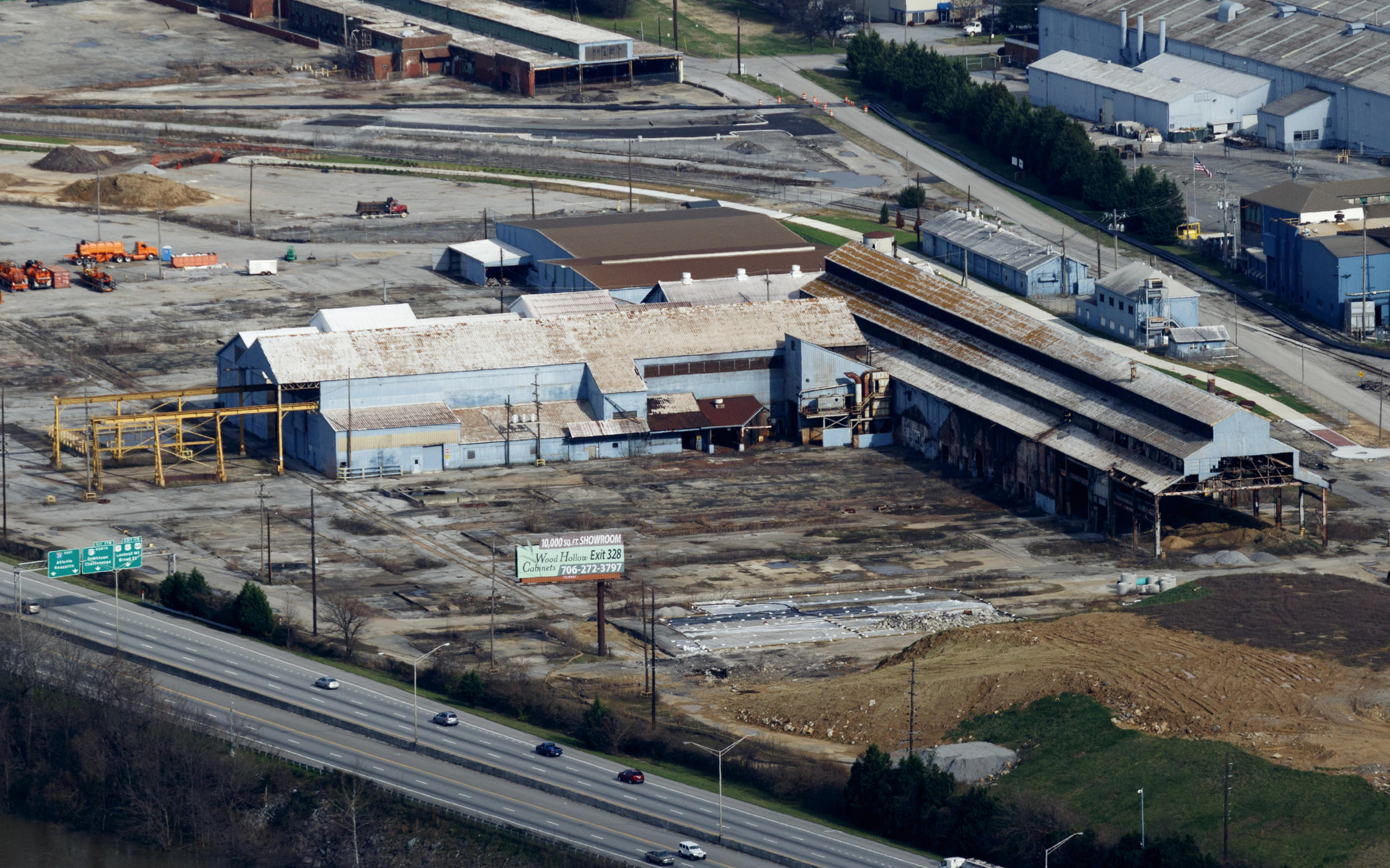A Chattanooga Lookouts owner says a new minor league ballpark on an old South Broad Street foundry site, coupled with other investments, could be "a game-changer" for that part of the city.
But Lookouts operating partner Jason Freier said the ownership group is waiting for the outcome of a visioning effort for the 141-acre former Wheland/U.S. Pipe foundry property and an adjacent 10-square-block area.
"We'll stand by and respect their process," he said about the planning initiative for the South Broad district, which is bounded by the foundry site, Interstate 24, The Howard School and Chattanooga Creek.
Two meetings held last week drew a large number of people with ideas for the district, and planners are to report back Sept. 11 with a framework to guide the area's future.
Freier, a Lookouts managing partner along with John Woods for the past three years, said they've already shown the foundry landowners two examples of how new minor league ballparks have served as catalysts for redevelopment in Fort Wayne, Ind., and Columbia, S.C.
In each instance, he said, "large, complicated public- private partnerships" were used to develop the projects.
"Everybody at the table had meaningful skin in the game," said Freier, who is managing owner of the teams in the two other cities. "That's the way we've done things."
In Chattanooga, he said, his group, public officials and the foundry landowners, Perimeter Properties, aren't at the point yet to know what the partnership would look like.
However, the Beacon Center, a Nashville-based free-market think tank, already has gone on record warning against tax dollars going to a private sports team such as the Lookouts.
"Using taxpayer money to fund a privately owned sports team is both morally wrong and a poor investment for taxpayers," spokesman Mark Cunningham said in a statement. "When millionaire franchise owners and developers seize tax dollars to fund their private businesses, taxpayers are the real losers."
Freier said the Lookouts' home at AT&T Field, now in its 18th year, wasn't designed or built to the standards of today's stadiums. AT&T Field, costing about $9 million, was built by former Lookouts owner Frank Burke.
"Because of the way it was designed, and the money that was put in there, it has become a dated ballpark earlier than many others built at the same time," Freier said.
New development
However, what has driven the stadiums in Fort Wayne and Columbia were opportunities to capitalize on meaningful development opportunities, he said.
In Fort Wayne, the new stadium was put in an area where the city was trying to spur growth. It's a new facility for more than just baseball and is used as a year-round venue, the Lookouts official said.
The Fort Wayne site is 9 years old and has helped generate more than $300 million in development downtown since it opened, Freier said.
In Columbia, where the stadium opened about 15 months ago on a 180-acre site, there have been four new or renovation projects and three others are active, he said. Five or six more are in the pipeline, Freier said.
"Both of those were catalysts for significant additional development," he said. "They created a sense of place that people could build around. It's helping catalyze associated development such as residential, restaurants, retail, office and hotel."
The Fort Wayne stadium has about 7,200 fixed seats, but it was built with the flexibility to handle 9,300 seats, Freier said. It cost $31.6 million, though the owners have put in $4.5 million more since the opening, he said. The Columbia facility cost $37 million, he said.
More than stadiums
Also, Freier said, both stadiums are full-fledged entertainment venues.
"When we do these things, we look at building not baseball stadiums but a 365-days-a-year outdoor venue," he said. Outdoor concerts, high school football and soccer and other events are programmed, Freier said.
In Fort Wayne, for example, its philharmonic orchestra plays a free concert that draws between 7,000 and 8,000 people, he said.
"People are doing 600 events a year," Freier said about the Fort Wayne site.
Columbia's ballpark is holding "a few hundred events a year" and that number will build over time, he said.
Freier said he expects the Lookouts to draw between 230,000 and 240,000 people this year.
By comparison, the old Fort Wayne stadium drew 250,000 in its last year while the new facility attracted 379,000 people just for baseball in its first year, he said.
This past year, that stadium drew 413,000 for baseball and 568,000 for all events, he said.
While not all the nonbaseball events were for pay, Fort Wayne as a market is two-thirds the size of the Chattanooga area, Freier said.
Woods said Chattanooga "deserves to have one of the nicest minor league stadiums in baseball."
"For Chattanooga to continue to compete and be the city it has become, it would be great for the city to have a new stadium," he said.
Contact Mike Pare at mpare@timesfreepress.com or 423-757-6318.

